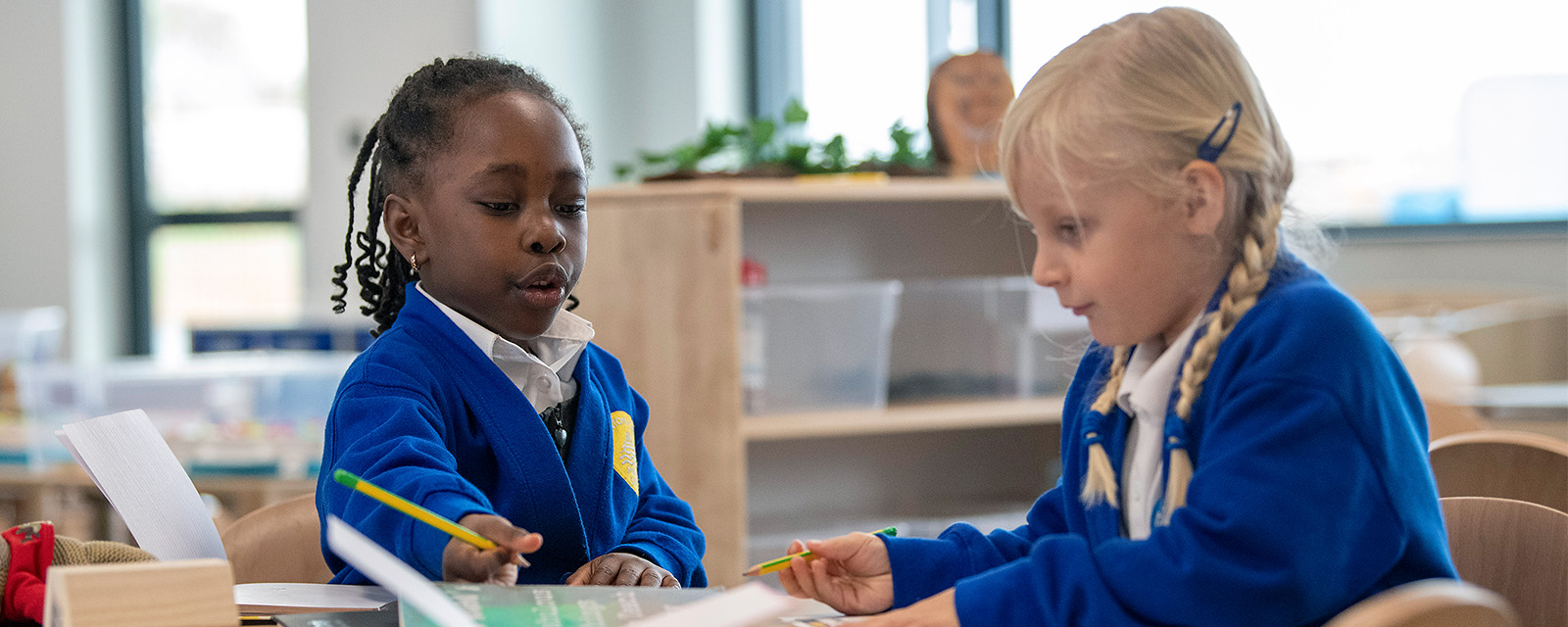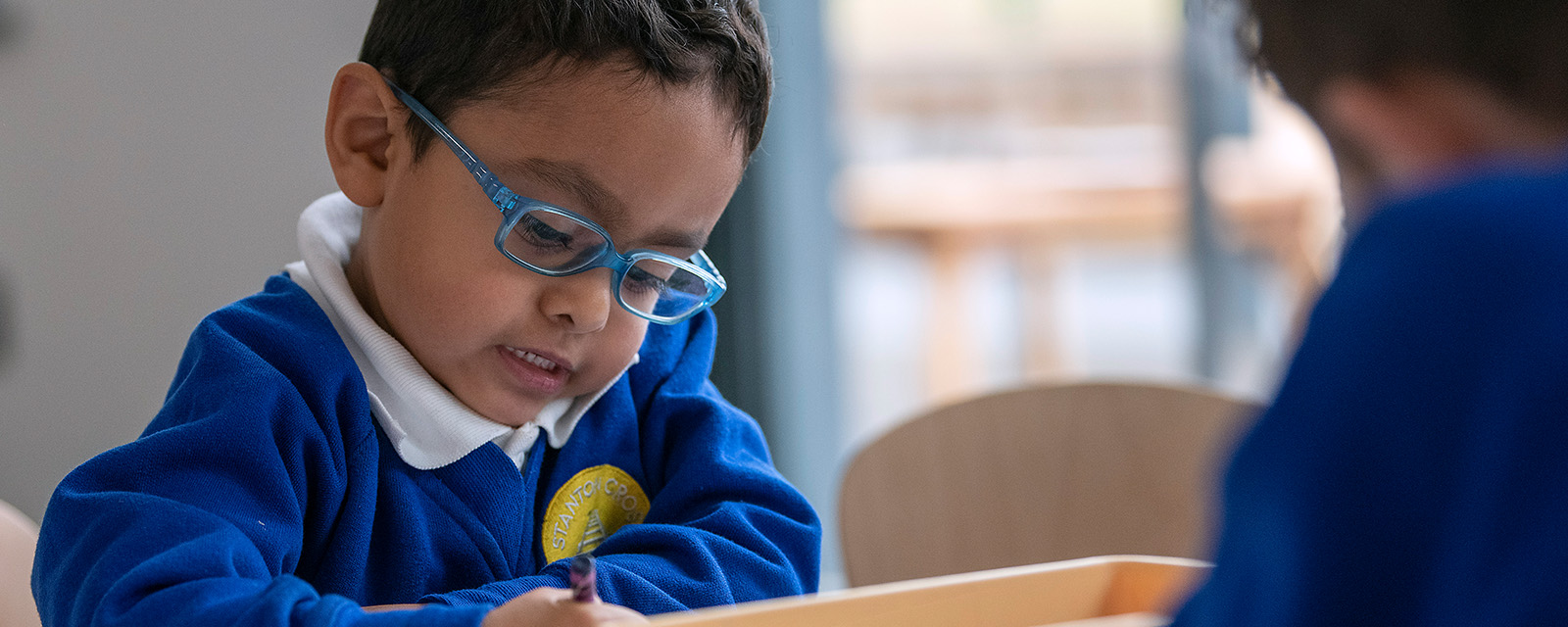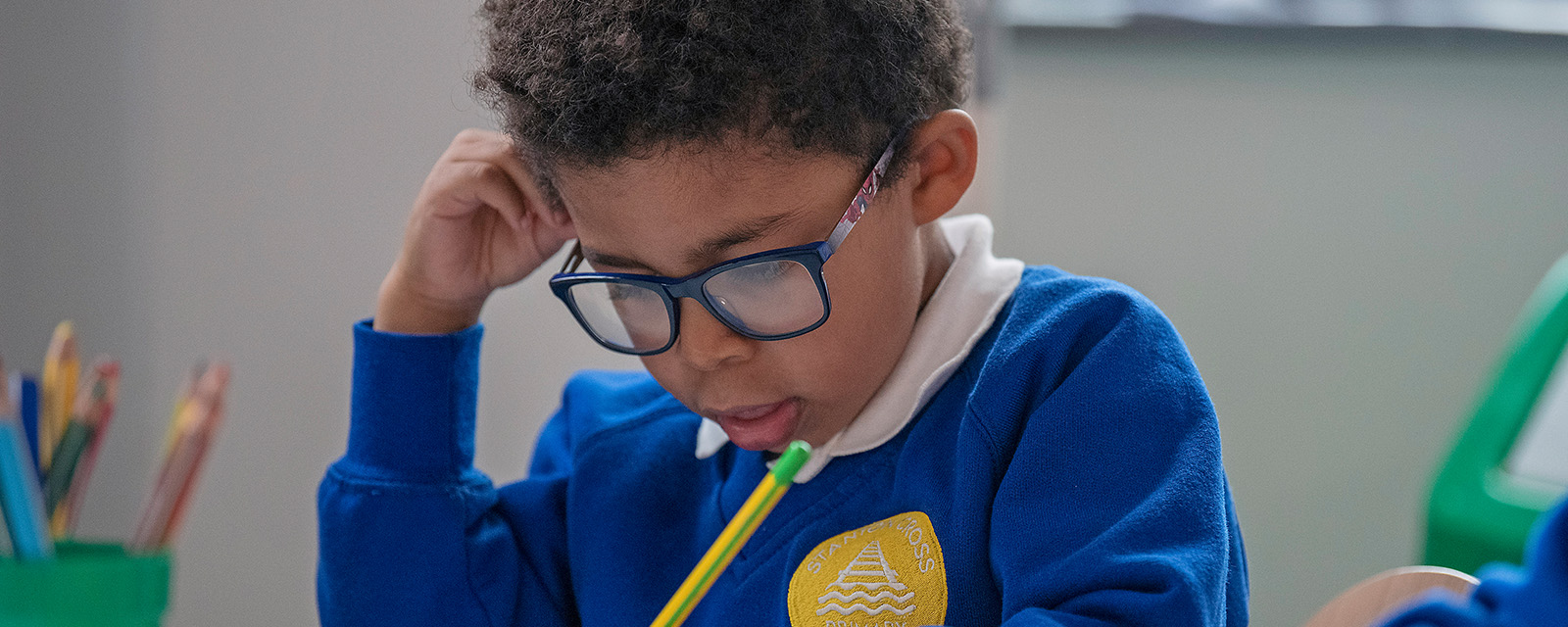Stanton Cross Primary School is committed to safeguarding and promoting the welfare of all of its pupils. Safeguarding is the responsibility of all school staff, governors and volunteers at our school.
- An environment where children and adults feel safe, secure and happy.
- A place where children can talk about their worries and they are listened to.
- Highly trained staff are able to identify welfare concerns and take appropriate action to address their them.
- Children know who their network of trusted adults are. (Protective Behaviours Hand)
- Every child learns how to stay safe, healthy and happy through a high quality PSHE curriculum and strong school ethos.
- Vulnerable children and families are supported.
If you are worried about a child outside of school please contact:
-
The Police on 999 if you think there is an immediate risk of harm.
-
North Northamptonshireshire Children’s Social Care on 0300 126 3000 to report concerns where a child might be experiencing neglect, sexual or emotional abuse
Safeguarding Curriculum
At Stanton Cross Primary we have a commitment to safeguard all our children and staff. We feel it is important to regularly give messages about how to keep ourselves safe. We work closely with outside agencies to ensure children are equipped with the right information about how to keep themselves safe and away from harm, and who they can talk to for support. We regularly give children the opportunities to discuss their concerns, and value respect and take seriously any concerns that they raise.
At Stanton Cross Primary we feel it is important to equip all of our children with the skills and knowledge to help them keep themselves healthy and safe. This is done through weekly PSHE lesson as well as termly Safeguarding weeks. Safeguarding weeks are an important feature of our curriculum as they ensure we are fulfilling our statutory duties, and allow our children to develop the skills they need to help them in later life. Each week has a different theme, children take part in age appropriate activities, and parents are also invited to take part in activities.
Our Designated Safeguarding Leads

Melissa Albert
Designated Safeguarding Lead

Jess Griggs
Deputy Designated Safeguarding Lea

Stacey Coote
Deputy Designated Safeguarding Lea

Ellie Gedney
Deputy Designated Safeguarding Lea

Gill Holland
Deputy Designated Safeguarding Lead
For more information, please see our Safeguarding and Child Protection Policy and our Safeguarding Leaflet to find out more. These are in the sidebar on the right along with other important safegaurding documents. Stanton Cross Primary School work in partnership with Northamptonshire Safeguarding Children Partnership. For up-to-date news and guidance please follow the links below:
Northamptonshire Safeguarding Children Partnership
What we will do when we are concerned about a child
We work closely with the ‘North Northamptonshire Safeguarding Children Partnership Board’ ensuring that as a school we access current, relevant training for designated staff, we also adopt their policies for keeping children safe.
Occasionally, we need to make a referral to Children’s Social Care when a child is at risk of harm. In accordance with local Information Sharing protocols, we will ensure that information is shared securely and sensitively. Information will only be shared with other services where it is deemed necessary and proportionate to ensure that children and young people are safe and receive the right service. When a child is at risk of significant harm, the law states that a referral to Children’s Social Care or the Police may be made without the permission from parents / carers.
What is MASH?
To learn more about ths Multi-Agency Safeguarding Hub (MASH) and what they do, click here..
Further information for parents
Below are some further details on services and websites that may be of interest.
NSPCC
The National Society for the Prevention of Cruelty to Children is a British child protection charity. In addition to the support it gives, it provides information on how you can keep children safe from abuse and other dangers, both online and in the physical world. The NSPCC also delivers the PANTS workshops in schools and the Speak out. Stay Safe - NSPCC service.
To contact the NSPCC helpline call 0808 800 5000.
Childline
Northamptonshire Children's Trust
Family Lives
Domestic Abuse
In the year ending March 2018, an estimated 2.0 million adults aged 16 to 59 years experienced domestic abuse in the last year (1.3 million women and 695,000 men). Domestic abuse is legally defined as:
“...any incident or pattern of incidents of controlling, coercive, threatening behaviour, violence or abuse between those aged 16 or over who are, or have been, intimate partners or family members regardless of gender or sexuality."
A victim of domestic abuse may experience:
- Psychological, controlling and coercive behaviours
- Physical abuse
- Sexual violence
- Financial control
If you are experiencing or know someone who is experiencing domestic abuse, please come and speak to a member of the designated persons for safeguarding or seek help / advice with the agencies below. All communication is confidential.
- Women’s Aid - 08454 103123
- Wellingborough Police - Report online or 101 non-emergencies / 999 in an emergency
- May Day Trust in Wellingborough - 01933 227314
- Home-Start Wellingborough and district- 01933 272729
- Northamptonshire rape crisis - 01604 250721 or the helpline-03002225930
- National Domestic Violence Helpline – 24 hour free phone 0808 2000 247
- Northamptonshire Domestic Abuse Service- www.ndas.co/resources Use this page for more information on services available in Northamptonshire and nationally
- Refuge, the largest UK domestic abuse organisation for women Empowering women to live without violence & fear. Refuge is the largest domestic abuse organisation in the UK. Supporting thousands of women & their children overcome the physical, emotional, financial impacts of abuse.
Child Exploitation and Online Protection
The government recently launched a website to support parents. The website has been developed with ParentZone and CEOP, the police command responsible for child exploitation and online protection. Parent Info is a collection of articles, tips, expert advice and resources designed to help parents keep up with what their children are doing on-line. For example, the site currently includes information about staying safe on minecraft, mental health, and building online resilience.
You can find further information here: https://parentzone.org.uk/parent-info
Prevent & Radicalisation
- RISK ASSESSMENT - being able to demonstrate both a general understanding of the risks affecting children and young people in the area and a specific understanding of how to identify individual children who may be at risk of radicalisation and what to do to support them. As with managing other safeguarding risks, staff should be alert to changes in children’s behaviour which could indicate that they may be in need of help or protection.
- WORKING IN PARTNERSHIP - Local Safeguarding Children Boards (LSCBs) are responsible for co-ordinating what is done by local agencies for the purposes of safeguarding and promoting the welfare of children in their local area. Safeguarding arrangements should already take into account the policies and procedures of the LSCB. Effective engagement with parents / the family is also important as they are in a key position to spot signs of radicalisation. It is important to assist and advise families who raise concerns and be able to point them to the right support mechanisms.
- STAFF TRAINING - schools should ensure that the Designated Safeguarding Lead undertakes Prevent awareness training and is able to provide advice and support to other members of staff on protecting children from the risk of radicalisation.
- IT POLICIES - for schools to ensure that children are safe from terrorist and extremist material when accessing the internet in schools. Schools should ensure that suitable filtering is in place. More generally, schools have an important role to play in equipping children and young people to stay safe online, both in school and outside. Internet safety will usually be integral to a school’s Computing curriculum and can also be embedded in PSHE and SRE.
Building children’s resilience to radicalisation
Taken from: The Prevent duty Departmental advice for schools and childcare providers June 2015
Safeguarding Documents
Safeguarding and Child Protection Policy



